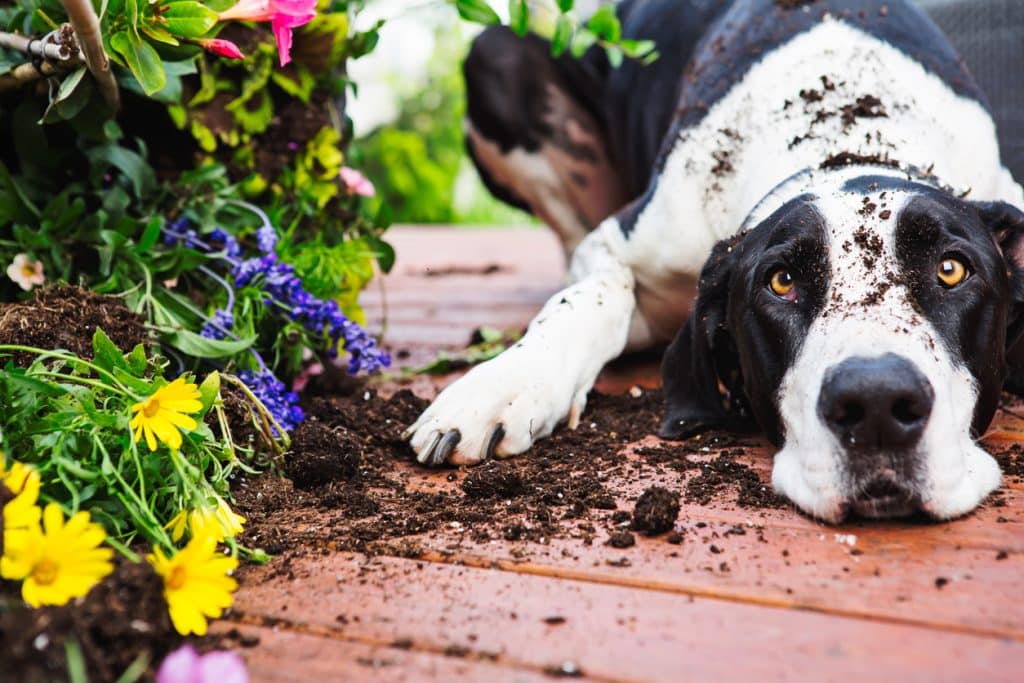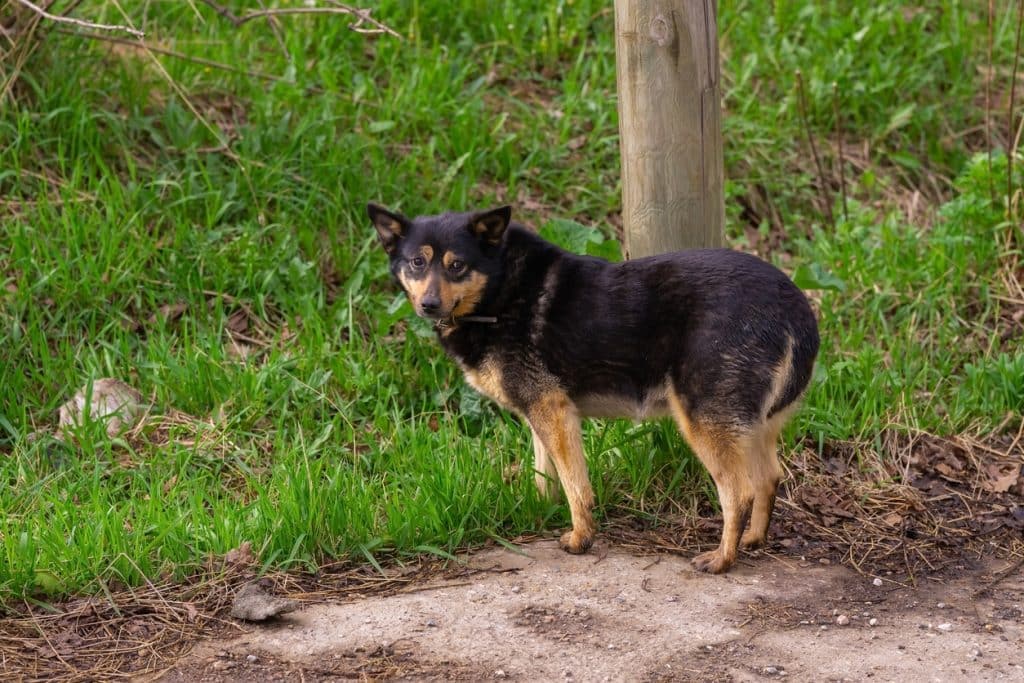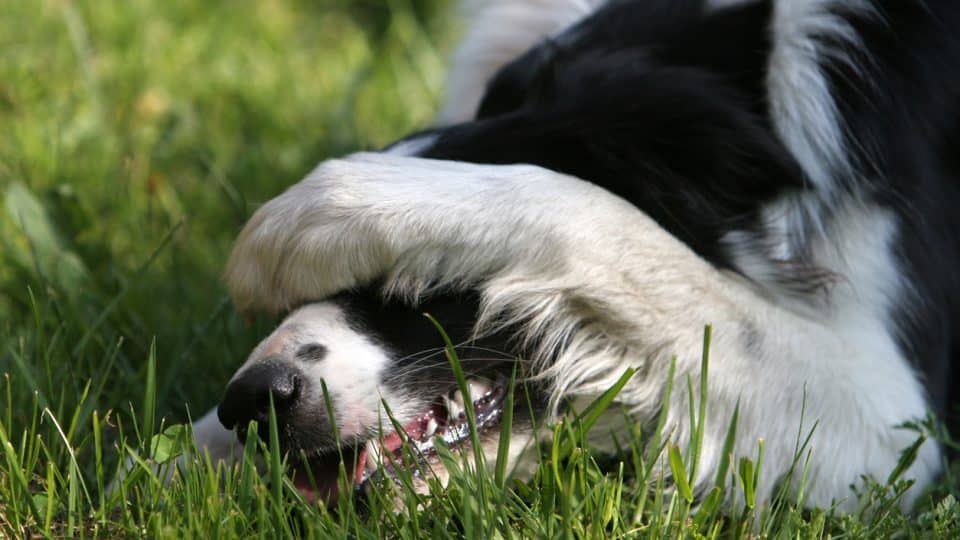Any pet parent knows their dogs are capable of feeling a wide range of emotions. From happiness and excitement to sadness and anxiety, a dog’s body language often tells us exactly how it feels. You might also wonder if your dog is embarrassed about pooping in front of you, for example. (Why else does it take them so long to poop?)
But can dogs get embarrassed? This is a complex emotion, even for humans. In short, you can guess if your dog is embarrassed based on how well you know your dog. However, pet parents might be projecting more than they think onto their dogs.
Defining Embarrassment
Embarrassment is based on a collective understanding of what is OK or normal and what isn’t. This means embarrassment can be different for everyone. While one person might feel incredibly self-conscious and embarrassed about walking around all day with spinach in their teeth, someone else might laugh it off and move on. “Embarrassment is a human emotion—something we feel when we break a customary or cultural faux pas,” says Leigh Siegfried, CEO and Founder of Opportunity Barks Behaviour & Training.
In fact, what we perceive as dog embarrassment is usually a misinterpretation of dog body language (more on that later). So if we are raised to be embarrassed around mess or poop, we might assume our dogs should feel embarrassed too. However, that instinct is also known as anthropomorphism.
“Anthropomorphism is when we take a human emotion and assign, or project these onto our dogs,” says Siegfried. Research has found that owners who anthropomorphise their dogs have a closer bond, but anthropomorphism may also lead to assumptions. We can misinterpret our dogs’ emotions by assuming they must feel or react the same way we do.

Image credit: ChristopherBernard | iStock
The Spectrum of Canine Emotions
Before we determine whether dogs can be embarrassed, we should establish what we do and do not know about dog emotions.
“Compared to humans, dogs have a limited emotional scale,” says Ali Smith, professional dog trainer and founder of Rebarkable. While they’re capable of feeling fundamental emotions, they don’t necessarily feel the complex or compound emotions of humans.
Research has also found that pet parents often attribute both basic and complex emotions to their pets, even if their pets aren’t necessarily capable of feeling those more complex emotions. However, most researchers do agree that animals, including dogs, can experience fundamental or basic emotions like:
But whether or not dogs are capable of feeling more complex emotions is still unclear. Complex or secondary emotions include feelings such as:
- Embarrassment
- Regret
- Grief
- Jealousy
- Shame
- Disappointment
Traditionally, we thought that only humans were capable of feeling these more complex emotions. But research now shows that our dogs are also capable of feeling jealous. If it’s possible for our dogs to feel one complex emotion, it’s not entirely out of the question that they could feel another, like embarrassment.
Marc Bekoff, author of The Emotional Lives of Animals, suggests that anecdotes certainly raise the possibility that our dogs can experience a wider range of emotions than we once thought. But he says that more research is needed before we can claim this with certainty.
Signs Mistaken for Embarrassment
When we think our dog is feeling embarrassed (and remember, this might not be their true emotions), we might witness:
- Tail tucking
- Hiding
- Ear dropping
- Avoidance
- Submissive behaviours
- Rolling around
- Anxious behaviours
Some pet parents may also see these as signs of shame and guilt. But again, these emotions have morality and social norms attached to them—so it’s unlikely (although not impossible) that our dogs would be feeling them.

Image credit: Tatiana Stepanishcheva | iStock
Rather than attribute emotions to our dogs that we aren’t certain they’re actually feeling, it’s better to pay close attention to their body language and behaviour. These are a more reliable indicator of how your dog is actually feeling at that moment. “One emotion that can be mistaken for embarrassment or guilt is appeasement. This is much more likely when people say their dog is feeling embarrassed,” says Smith.
For humans, embarrassment has a social purpose. We remember the feeling of embarrassment when we committed a faux pas, and we don’t want to experience that again. But this kind of self-consciousness doesn’t really feature in canine society.
When Is My Dog Likely to Feel Embarrassed?
As a pet parent, you’ve probably seen those viral pet-shaming videos of dogs looking embarrassed. Dogs will be sitting next to a sign reading: “I ate a whole birthday cake” or “I dug up the new flowers.” These might be funny to us (sometimes), but they are also situations we determine are embarrassing for them.
In fact, as we discovered, they probably don’t feel embarrassed even when made to pose with a sign. If someone laughs at your dog when they do something silly, your dog is more likely to be confused. In fact, if you laugh at a dog after they are shaved bizarrely, fart, or poop, it’s more likely you startled a dog into a reaction.
Our dogs can read our body language, mood, and tone of voice and tell how we’re feeling. Often, we misinterpret their appeasement or fear signals when they know we’re not happy with them as embarrassment.
Would your dog give the same reaction if you weren’t there when they raided the bin or shredded a whole roll of paper towels? It’s unlikely. If you have a pet camera at home, see if your dog’s behaviour is the same or different when they do something that you’re not there to witness.
What To Do If My Dog Gets Embarrassed
“If you think your dog is embarrassed—remember, it’s far more likely they’re showing signs of fear or appeasement,” says Smith. These include signs like yawning, turning their head to the side, or showing the whites of their eyes more than usual. It’s easy to misinterpret these signals as embarrassment, but it’s also more likely to be a sign of anxiety or concern. In some cases, a dog may even become defensive.
“On the assumption that what your dog is actually feeling is appeasement and/or fear, it’s very important not to punish your dog,” says Smith. “This only shows them they were right to be scared. They don’t have the ability to process that the behaviour they carried out is something that you don’t like.”
Consider how you can help your dog feel safe, either by giving them a safe space like a crate or using treats and training to stop the signs of fear before they show. Speak with a qualified dog trainer or behaviourist if you’re looking for advice tailored to your particular circumstances.

Image credit: georgeclerk | iStock
Sometimes we also need to consider our own response!
“Our dogs respond to the intensity or change in our body language relative to their sensitivity, personality, and temperament,” says Siegfried. If you have a habit of yelling witnessing destruction or inappropriate behaviour, your dog may show signs of appeasement in hopes of de-escalating your reaction. The best thing to do then is stay calm and focus any negative sentiment away from your dog.
“So often when we see signs of appeasement, this is due to some prior interaction which has resulted in this pattern of behaviour. We’ve all seen those viral videos of people walking into their house and seeing their dog has destroyed something. The dog approaches them with a submissive grin—this is a huge fawning response.”
Observing The Behaviour is More Important Than Labelling The Emotion
As much as we feel connected to and emotionally in tune with our dogs, they simply can’t tell us how they’re feeling. But we can observe their body language and behaviour and try to avoid making assumptions based on our own emotions.
While we don’t yet know for sure if dogs and cats can feel embarrassed, researchers do believe that some animals, like chimpanzees, can feel this emotion. But more research is needed before we know for sure.
For now, pet parents should avoid the temptation to label their dogs’ emotions. We should also make sure we’re not the source of negative consequences when our dogs don’t behave. Instead, focus on what your dog is—or was—trying to tell you. Maybe the mess was because you forgot to latch the bin shut, or they needed a chew toy while you were busy.
We can’t always say with certainty what our dogs our feeling, but who knows? Research around canine cognition and emotions is improving our knowledge all the time! But we also don’t need to wait for research to continue improving the way we bond and communicate with our dogs.



